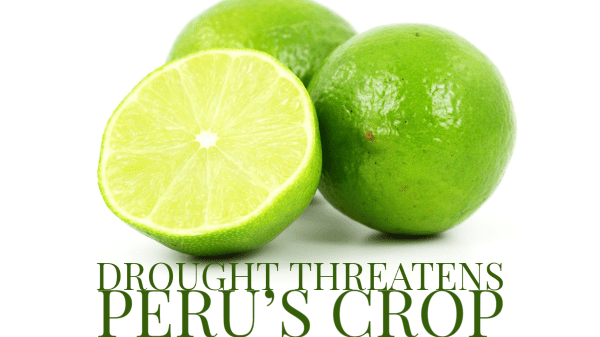A few weeks ahead of summer, a drought in the north threatens Peru’s lime harvests.
For locals, this means a typical dish such as ceviche or lemonade would be at risk, according to reporting by Agraria. But it could also dramatically curtail exports.
Luis Olivares, the president of the Association of Citrus Producers of Peru (ProCitrus), says there could be a shortage of limes and a rise in its prices if insufficient rains continue for at least the next two weeks.
Olivares says “a drought leads to a drop in production, either due to smaller sizes or because each hectare yields fewer tons. Everything will depend on whether the drought continues or not. It is expected that in the coming weeks the rains will begin to regularize, but if this continues there could be a shortage.”


The rainy season should have started a few months ago, however, they have been very rare. This is the reason that access to the water in the reservoirs has been restricted.
Limes, among other citrus products, are the ones with the greatest presence in northern Peru, in particular, around Piura, where more than half of the national lime production in 2016 was produced, according to data from the Ministry of Agriculture and irrigation (Minagri).
That region is followed in production by the cities of Lambayeque, Tumbes, and the region of Loreto, which are all located in northern Peru.
There are 18,353 hectares in the region of Piura that are designated for lime crops. San Lorenzo has 10,696 hectares, while Chira has 4,448, and Chulucanas has 1,453.
According to Olivares, limes are a permanent crop that is sown and harvested year-round, with the months leading up to summer representing the most important period of the year.
Peru produces the Sutil and Tahiti lime varieties with the former destined for the domestic market while the latter grown more for export purposes. In 2019, 9,000 tons of Tahiti limes were exported for $9.2 million, representing a growth of 55 percent when compared to the amount invoiced in 2018.



